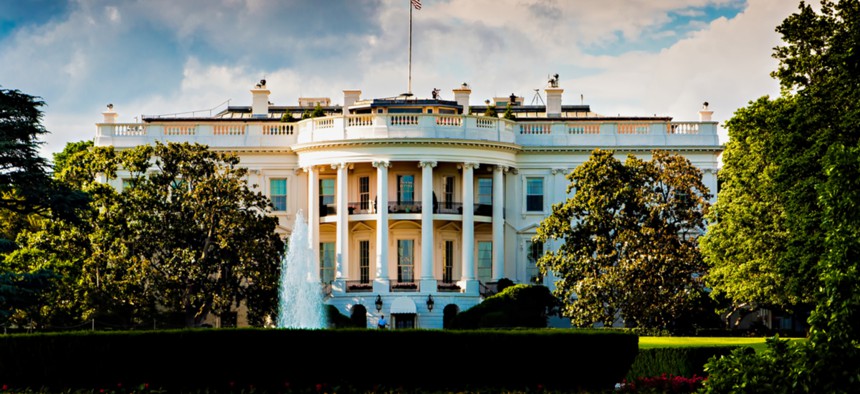White House Announces Select Committee of Federal AI Experts

ESB Professional/Shutterstock.com
The new interagency group will coordinate artificial intelligence programs and research across government.
Artificial intelligence is perhaps the biggest buzzword in federal technology today. For the government—and society at large—to truly benefit from AI’s potential, government, industry and academia will have to come together to foster this nascent technology, according to the president’s top tech adviser.
The White House convened a summit Thursday of top thinkers in the field of AI, during which Michael Kratsios, deputy assistant to the president for technology policy and current head of the Office of Science and Technology Policy, announced a new Select Committee on Artificial Intelligence made of up the leading AI researchers in government.
“In the summer of 1956, a dozen American scientists gathered on Dartmouth’s campus with the goal to, ‘find how to make machines solve the kinds of problems now reserved for humans,’” Kratsios said, according to prepared remarks provided to Nextgov by OSTP. “Now, nearly 62 years later, the age of artificial intelligence is here, and with it the hope of better lives for the American people.”
The committee—housed within the National Science and Technology Council—will be charged with advising the White House on governmentwide AI research and development priorities and will work to establish partnerships between government, the private sector and independent researchers.
The committee will be chaired by OSTP leadership, along with the National Science Foundation and the Pentagon’s research arm, the Defense Advanced Research Projects Agency. Initial committee membership will include:
Walter Copan, Commerce Department undersecretary for standards and technology and director of the National Institute of Standards and Technology; Michael Griffin, Defense Department undersecretary of defense for research and engineering; Paul Dabbar, undersecretary for science at the Energy Department; NSF Director France Cordova; DARPA Director Peter Highnam and Intelligence Advanced Research Projects Agency Director Jason Matheny.
In order to foster a whole-of-government discussion, the committee will also have representatives from the National Security Council, Office of the Federal Chief Information Officer and the Office of Management and Budget.
“This select committee will be comprised of the most senior R&D officials across the federal government,” Kratsios said. “It will align interagency R&D priorities and improve planning and coordination of federal AI investments.”
He pointed to a number of AI pilots already in process across government, including at the General Services Administration, the National Institutes of Health and the Energy and Veterans Affairs departments.
Speaking to the industry and academic representatives in the room, Krastios said the administration will continue to promote advancements in AI in and out of government. The Trump administration has increased spending on unclassified R&D for AI and related technologies, like machine learning, more than 40 percent since 2015.
“We’ve already made America the best in the world for AI research and development,” he said. “Our task now is to make sure America stays the best. In the private sector, we will not dictate what is researched and developed. Instead we will offer resources and the freedom to explore.”






